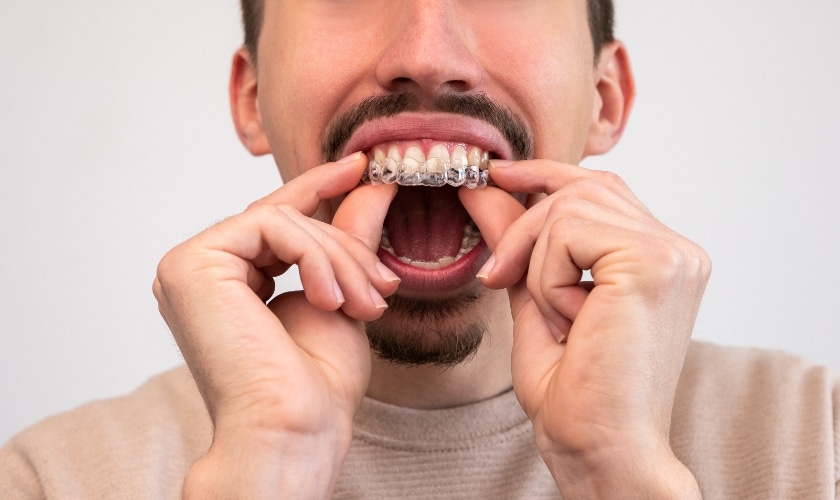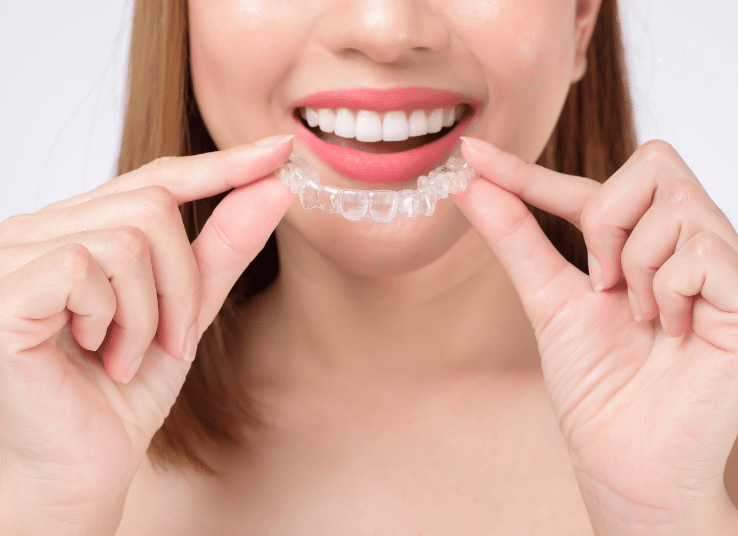
Achieving a perfect smile is a common goal, and many people consider orthodontic treatments like Invisalign to help them reach that goal. If you’re thinking about Invisalign but still have your wisdom teeth, you might wonder how these molars could affect your treatment. In this article, we’ll explore the relationship between Invisalign and wisdom teeth to help you make an informed decision.
What Is Invisalign?
Invisalign is a modern orthodontic treatment that uses clear, removable aligners to gradually shift teeth into their desired positions. Unlike traditional metal braces, Invisalign aligners are nearly invisible, offering a discreet and comfortable alternative. This makes Invisalign a popular choice for adults and teens who want to correct dental issues without the noticeable appearance of braces.
How Do Wisdom Teeth Affect Invisalign?
Wisdom teeth, or third molars, typically emerge between the ages of 17 and 25. Their arrival can complicate orthodontic treatments like Invisalign, depending on their position and how they develop. While some people’s wisdom teeth don’t cause any issues, others may experience discomfort, crowding, or even infection as these teeth try to push through.
Will Wisdom Teeth Impact Your Invisalign Treatment?
In some cases, wisdom teeth may not interfere with Invisalign at all. However, if your wisdom teeth are impacted, growing at an angle, or likely to cause overcrowding, they could potentially affect your treatment plan. For those considering Invisalign in Cedar Park, TX, or elsewhere, it’s crucial to have a thorough evaluation by an experienced orthodontist. This evaluation will help determine the best approach, taking into account the position and development of your wisdom teeth.
What If Wisdom Teeth Are a Concern?
If your wisdom teeth are positioned in a way that could disrupt your Invisalign treatment, your orthodontist might recommend removing them before starting the treatment. Wisdom tooth extraction is a common procedure that can help ensure the success of your Invisalign journey.
Advantages of Removing Wisdom Teeth Before Invisalign
- Greater Precision: Wisdom teeth, if left in place, might interfere with the movement of other teeth during Invisalign treatment. By removing them beforehand, your orthodontist can have better control over the alignment process, leading to more precise and satisfactory results.
- Reduced Discomfort: Wisdom teeth that are impacted or improperly positioned can cause significant discomfort during orthodontic treatment. Removing these molars can alleviate pressure and make the Invisalign process more comfortable.
- Optimized Results: Misaligned wisdom teeth can affect the overall symmetry of your smile. By removing them before starting Invisalign, you can ensure that your treatment results in a more aesthetically pleasing and stable smile.
Comparing Invisalign Treatment With and Without Wisdom Teeth
Without Wisdom Teeth:
- Easier Process: If you don’t have third molars or if they’re properly positioned, your Invisalign treatment is likely to be more straightforward.
- Fewer Preparations: Without the need for wisdom tooth extraction, you can begin your Invisalign treatment without any additional steps.
With Wisdom Teeth:
- Possible Extraction Needed: If your third molars are likely to interfere, you may need to have them removed before starting Invisalign.
- Better Alignment: Removing wisdom teeth allows orthodontists to focus on aligning the remaining teeth more effectively, ensuring the success of your Invisalign treatment.
Common Concerns and Their Solutions
- Managing Pain:
- During Extraction: Wisdom tooth removal is typically done under local anesthesia, minimizing discomfort during the procedure.
- After Extraction: Post-procedure pain is usually manageable with over-the-counter or prescribed pain relief, with most patients recovering within a few days.
- Recovery Time:
- Quick Healing: Most people can resume normal activities within a day or two after wisdom tooth extraction. Any lingering discomfort or swelling usually subsides quickly.
- Fit of Invisalign Aligners:
- Customized Fit: Invisalign aligners are custom-made for your dental structure. Removing wisdom teeth won’t affect how well the aligners fit, as they’ll be designed to fit your adjusted dental anatomy snugly and comfortably.
If you’re considering Invisalign and still have your wisdom teeth, it’s essential to address any potential concerns before beginning treatment. Consulting with a dentist, especially if you’re seeking Invisalign in Cedar Park, TX, will help ensure that you receive a customized and effective treatment plan. By taking the necessary steps to manage your wisdom teeth, you can embark on a successful Invisalign journey and achieve the smile you’ve always wanted.




